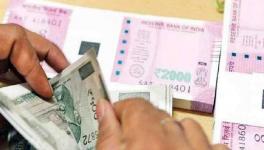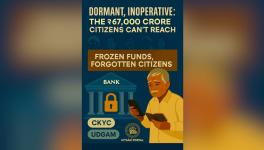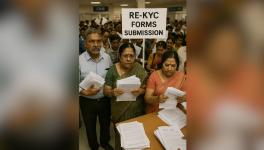Funding of 10 More NGOs Slashed
Representational use only.
Despite the enormous contribution of non-governmental organisations (NGOs) and relief work undertaken by them
across the country, more such entities are now under the scanner of the ministry of home affairs (MHA) with the Centre restricting the funding of 10 American, Australian and European groups.
In an internal note sent to all the banks on July 1, the Reserve Bank of India stated that the government had specified a number of foreign entities to be placed in the ‘Prior Reference Category’ (PRC) list under the Foreign Contribution (Regulation) Amendment Act, 2020. According to the note, both banks and chartered accountants are accountable for any unauthorised funds that come through.
“The RBI has instructed that any fund flow from the (specified) donor agencies to any NGO/voluntary organisation/ persons in India should be brought to the ministry of home affairs so that the funds are allowed to be credited to the recipients only after clearance/prior permission from the MHA’s foreigners division of the FCRA wing,” says the notice, who copy was obtained by The Hindu newspaper.
With the addition of these 10 entities, the total number of number of NGOs in the PRC list has gone up to more than 90. The 10 NGOs include European Climate Foundation, three US-based NGOs, two Australia-based NGOs and UK-based Children’s Investment Fund Foundation, Freedom fund and Laudes foundation and as well as UK/UAE-based Legatum fund.
Scrambling for funds and dealing with stringent provisions, many NGOs have had to shut shop, affecting crucial work across the country.
Advocate Ansar Indori of Delhi-based National Confederation Of Human Rights Orgnizations told Newsclick, “The funding of non-governmental organisations from foreign countries has decreased under the Narendra Modi government by around 40%. According to a report by foreign consultant firm Bane & Company, the licences of around 13,000 NGOs have been cancelled by the home ministry since the Modi government came to power.”
In 2017, licences of “around 4,800 NGOs were cancelled. The government has initiated investigations against several NGOs working for the protection of constitutional and human rights citing violation of the FCRA Act. These organisations had protested the investigations and described them as a misuse of power”, Indori added.
According to the MHA’s responses in Parliament, the government cancelled the FCRA licenses of more than 6,600 NGOs and suspended those of about 264 between 2016-2020, The Hindu reported.
The amendments to the Foreign Contribution (Regulating) Act, 2010, had restricted sub-granting of funds, stalling aid from global citizens and calling for an end to all foreign donations in the name of protecting the interests of the country. Organisations are required to meet their administrative expenses with 20 per cent of foreign contribution and also restricted from seeding finances to smaller organisations.
Meenakshi Batra, CEO, Charities Aid Foundation, explained in December 2020 that amended Act “will disturb the ongoing development work in India that is supported by these companies”.
“Before the current FCRA storm, international nonprofits sent money to their Indian offices, which functioned fairly independently. They took key decisions and sub-granted the funds to other nonprofits based on their understanding of local needs and issues. Now, with sub-granting being disallowed, international nonprofits will have to directly send funds to the implementing organisation (and not their own Indian office)—a far more complicated process, and one step further removed from the situation on the ground,” Batra wrote.
Amnesty International was forced to shut its India offices last year after the Enforcement Directorate froze its accounts. UK-based Commonwealth Human Rights Initiative (CHRI) is fighting a legal battle to seek permission for utilisation of 25 per cent of its foreign contribution and permission to receive donations from abroad.
Lara Jesani, lawyer, human rights activist and member of People’s Union for Civil Liberties, told Newsclick: “The cancellation of the licences have been arbitrary. Though the NGOs challenge the cancellations in court, it takes years to get a verdict.”
The government, according to Jesani, wants to stop these NGOs from fighting for rights. “For example, CHRI is working against human rights violation. The government is using the FCRA very vindictively against organisations working for minority rights, secularism and police and environmental reforms. These organisations are being particularly targeted by cutting off their funding and international support and discrediting and vilifying them.”
The fresh clampdown is being viewed as a further curtailment of the rights and freedom of organisations which question the government. Social activist Shabnam Hashmi, founding member, ANHAD, told Newsclick that the Modi government “has cancelled the FCRA licences of more 20,000 NGOs”.
“We got a one-liner from the government: ‘Your work is not in the interest of the people’ when the MHA cancelled our FCRA licence. Consequently, our work in rural Bihar, Mewat and Kashmir collapsed. We were running women empowerment centres, teaching women, giving them vocational training and educating them about gender rights. The FCRA cancellation has not shut our voice of dissent, which is as loud as before,” Hashmi added.
Get the latest reports & analysis with people's perspective on Protests, movements & deep analytical videos, discussions of the current affairs in your Telegram app. Subscribe to NewsClick's Telegram channel & get Real-Time updates on stories, as they get published on our website.
























